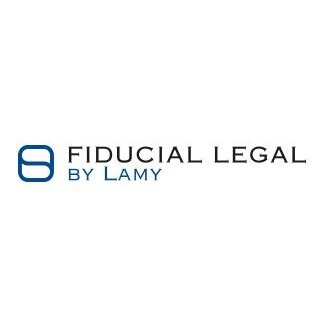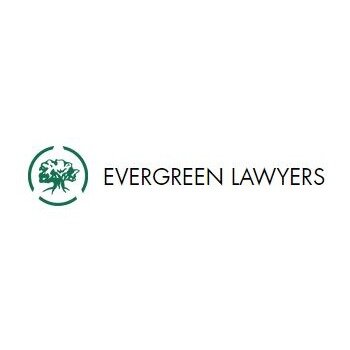Best Elder Law Lawyers in France
Share your needs with us, get contacted by law firms.
Free. Takes 2 min.
Or refine your search by selecting a city:
List of the best lawyers in France
About Elder Law in France
Elder Law in France encompasses a variety of legal issues that affect the elderly population, including retirement, healthcare, guardianship, estate planning, and protection against elder abuse. It is designed to assist older individuals in navigating complex legal situations and ensuring their rights are preserved. The French legal system offers several layers of protection and resources tailored to the needs of the elderly, promoting their well-being and autonomy.
Why You May Need a Lawyer
There are numerous situations where consulting a lawyer specializing in Elder Law can be crucial. Common scenarios include:
- Planning for long-term care and understanding the legal implications of various housing options.
- Drafting or revising wills, trusts, and other estate planning documents to ensure they reflect the current wishes and needs of the elderly individual.
- Navigating the complexities of French social security and pension benefits.
- Disputes over guardianship and the appointment of a legal representative.
- Addressing instances of elder abuse or neglect, whether in a family or institutional setting.
Local Laws Overview
French Elder Law is shaped by several important legal frameworks:
- Guardianship: French law allows for legal guardianships (tutelle) or curatorships (curatelle) to be established for individuals who cannot manage their affairs. The courts typically oversee these arrangements, ensuring the elderly person's interests are protected.
- Pension and Social Security: France has a robust social security system, including provisions for retirement pensions. Understanding the nuances of these benefits often requires legal expertise, especially for expatriates or dual nationals.
- Healthcare Decision-Making: Legal instruments such as advance healthcare directives (directives anticipées) enable individuals to specify their healthcare preferences should they be unable to express them in the future.
- Estate Planning: French inheritance laws (succession) dictate how estates are managed, with specific rules about reserved heirs (héritiers réservataires) and testamentary freedom.
Frequently Asked Questions
What is an advanced healthcare directive?
An advanced healthcare directive is a legal document that outlines your healthcare preferences in the event that you are unable to make decisions for yourself. This ensures your wishes are respected and relieves family members of difficult decision-making.
How can I protect an elderly relative from financial abuse?
Legal measures such as appointing a trusted guardian or using power of attorney can help manage financial affairs. Regularly reviewing bank statements and setting up safeguards like spending limits and alerts can also be effective.
What is the difference between tutelle and curatelle?
"Tutelle" is a comprehensive guardianship arrangement for those who cannot make decisions independently, while "curatelle" is a lighter version, providing assistance only for certain significant acts, allowing some autonomy.
Are there special legal considerations for foreign nationals or expatriates?
Yes, foreign nationals may face unique legal challenges related to cross-border estate planning, taxation, and pension rights. It's crucial to consult with an attorney experienced in international law to ensure compliance and protection.
What steps should I take if I suspect elder abuse?
Report the matter to local authorities, such as the police or social services, and consult with an attorney to understand legal options. France has supportive legislation to address and rectify elder abuse but requires timely action.
What are reserved heirs in French inheritance law?
Reserved heirs are individuals, such as children and spouses, who are entitled to a portion of an estate under French law. The concept ensures certain family members receive a minimum inheritance, affecting how estate planning is conducted.
How do I contest a will in France?
Challenging a will in France involves legal proceedings and requires demonstrating that the will deviates from legal requirements or was executed under duress or incapacity. Consultation with a legal expert is advised for such proceedings.
What assistance is available for Alzheimer’s patients in France?
France provides a range of medical, legal, and social support services for Alzheimer’s patients, including specialized healthcare, support groups, and legal mechanisms for managing their affairs through guardianship arrangements.
How can I plan for long-term care in France?
Consider consulting a financial planner and elder law attorney to explore options such as retirement homes, at-home care services, and government programs. They can provide valuable insights into costs, benefits, and legal requirements.
Can I draft a legal document without a lawyer?
While it's possible to draft some documents without legal counsel, it's often not advisable due to the complexity of laws governing elder care and estate planning in France. Mistakes can have significant repercussions.
Additional Resources
For further assistance and information, consider reaching out to the following organizations:
- The French Ministry of Solidarity and Health (Ministère des Solidarités et de la Santé): Provides resources and information concerning elder care and services.
- National Institute for Health and Medical Research (INSERM): Offers research and data on aging and elderly health issues.
- France Alzheimer: An association dedicated to supporting individuals affected by Alzheimer's.
Next Steps
If you believe you need legal assistance in Elder Law, consider taking the following steps:
- Identify the specific issues or challenges you face and gather relevant documentation.
- Research and identify qualified elder law attorneys in your area or network who specialize in your area of need.
- Schedule consultations to discuss your situation, understand their approach, and evaluate their experience and compatibility with your needs.
- Consider the costs involved, and if necessary, explore options for legal aid or financial assistance.
Remember, seeking legal advice early on can prevent complications and ensure that the interests and rights of the elderly are effectively protected.
Lawzana helps you find the best lawyers and law firms in France through a curated and pre-screened list of qualified legal professionals. Our platform offers rankings and detailed profiles of attorneys and law firms, allowing you to compare based on practice areas, including Elder Law, experience, and client feedback.
Each profile includes a description of the firm's areas of practice, client reviews, team members and partners, year of establishment, spoken languages, office locations, contact information, social media presence, and any published articles or resources. Most firms on our platform speak English and are experienced in both local and international legal matters.
Get a quote from top-rated law firms in France — quickly, securely, and without unnecessary hassle.
Disclaimer:
The information provided on this page is for general informational purposes only and does not constitute legal advice. While we strive to ensure the accuracy and relevance of the content, legal information may change over time, and interpretations of the law can vary. You should always consult with a qualified legal professional for advice specific to your situation.
We disclaim all liability for actions taken or not taken based on the content of this page. If you believe any information is incorrect or outdated, please contact us, and we will review and update it where appropriate.
Browse elder law law firms by city in France
Refine your search by selecting a city.












